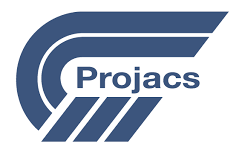
Construction Management Executive Program
Course ID: 2509150101297EGI
Course Dates : 15/09/25 Course Duration : 5 Studying Day/s Course Location: London, UK
Language: Bilingual
Course Category: Professional and CPD Training Programs
Course Subcategories: Leadership and Management Excellence
Course Certified By: * Projacs Academy
* Professional Training and CPD Programs
Certification Will Be Issued From :
KSA
Course Fees: £4,838.34
Vat Not Included in the price. VAT may vary depending on the country where the course or workshop is held.
Click to Pay
Date has passed please contact us Sales@e-s-hub.com
Course Information
Introduction
The construction industry is a cornerstone of economic development, shaping the physical infrastructure that supports communities, businesses, and governments. However, as the sector grows in complexity—driven by technological advancements, sustainability imperatives, and evolving regulatory landscapes—the demand for skilled leadership in construction management has never been more critical. This program is designed to equip professionals with the strategic, operational, and technical competencies required to navigate the multifaceted challenges of modern construction projects. By blending theoretical frameworks with practical insights, participants will emerge prepared to lead with confidence, efficiency, and innovation.
One of the most pressing challenges in construction management today is the misalignment between project planning and execution. Studies have shown that nearly 90% of large-scale construction projects experience delays or cost overruns, often due to inadequate risk assessment, poor communication, or inefficient resource allocation. Drawing on established theories such as Lean Construction and Integrated Project Delivery (IPD), this course addresses these gaps by providing tools and methodologies to streamline processes, enhance collaboration, and mitigate risks. Participants will learn how to apply these frameworks to real-world scenarios, ensuring that projects are delivered on time, within budget, and to the highest quality standards.
Consider the case of the Burj Khalifa in Dubai, the world’s tallest building. Its successful completion was not merely a feat of engineering but also a triumph of meticulous project management. From coordinating thousands of workers across multiple time zones to sourcing materials sustainably, the project exemplifies the importance of advanced construction management practices. This course delves into similar case studies, offering participants a deep understanding of how effective leadership and strategic decision-making can transform ambitious visions into tangible realities.
For organizations, investing in construction management expertise translates into measurable benefits, including improved profitability, enhanced reputation, and greater competitive advantage. For individuals, mastering these skills opens doors to career advancement, enabling them to take on senior roles such as project director, construction manager, or operations lead. Moreover, as global trends like Building Information Modeling (BIM) and green construction gain traction, professionals equipped with cutting-edge knowledge will be better positioned to drive innovation and compliance in their organizations.
This program also emphasizes the human element of construction management, recognizing that leadership and stakeholder engagement are as crucial as technical proficiency. Through interactive sessions and role-playing exercises, participants will develop the soft skills needed to manage diverse teams, negotiate contracts, and resolve conflicts effectively. These competencies are particularly vital in cross-cultural settings, where misunderstandings can derail even the most well-planned projects.
Ultimately, the Construction Management Executive Program is more than a training initiative—it is a catalyst for transformation. Whether you are overseeing a high-rise development, managing infrastructure upgrades, or spearheading sustainable building initiatives, this course will empower you to excel in your role and contribute meaningfully to the future of the construction industry.
Objectives
By attending this course, participants will be able to:
Analyze project risks using advanced risk management frameworks and develop mitigation strategies tailored to specific construction scenarios.
Evaluate the effectiveness of resource allocation plans and optimize workflows to minimize waste and improve productivity.
Design comprehensive project schedules incorporating critical path methods (CPM) and Gantt charts for efficient timeline management.
Implement sustainable construction practices aligned with international green building standards, such as LEED and BREEAM.
Apply principles of contract law to draft, review, and negotiate agreements that protect organizational interests while fostering collaboration.
Assess the impact of emerging technologies, such as drones and AI, on construction site monitoring and decision-making processes.
Lead multidisciplinary teams through effective communication, conflict resolution, and performance evaluation techniques.
Who Should Attend?
This course is ideal for:
Senior project managers seeking to refine their leadership capabilities and stay abreast of industry trends.
Engineers transitioning into managerial roles who require a holistic understanding of construction management principles.
Consultants specializing in project advisory services aiming to enhance their value proposition for clients.
Government officials responsible for overseeing public infrastructure projects and ensuring regulatory compliance.
Professionals from both private and public sectors will find this course invaluable, as it bridges the gap between theoretical knowledge and practical application. While prior experience in construction or related fields is beneficial, the program is structured to accommodate intermediate learners looking to deepen their expertise. Advanced practitioners will also appreciate the opportunity to explore cutting-edge tools and methodologies reshaping the industry.
Training Method
• Pre-assessment
• Live group instruction
• Use of real-world examples, case studies and exercises
• Interactive participation and discussion
• Power point presentation, LCD and flip chart
• Group activities and tests
• Each participant receives a 7” Tablet containing a copy of the presentation, slides and handouts
• Post-assessment
Program Support
This program is supported by:
* Interactive discussions
* Role-play
* Case studies and highlight the techniques available to the participants.
Daily Agenda
The course agenda will be as follows:
• Technical Session 08.30-10.00 am
• Coffee Break 10.00-10.15 am
• Technical Session 10.15-12.15 noon
• Coffee Break 12.15-12.45 pm
• Technical Session 12.45-02.30 pm
• Course Ends 02.30 pm
Course Outlines
Foundations of Construction Management
Overview of key concepts and industry trends
Principles of project lifecycle management
Introduction to Lean Construction and IPD frameworks
Case study analysis: Lessons from iconic construction projects
Day 2:
Risk Management and Resource Optimization
Identifying and assessing project risks
Developing risk mitigation strategies
Techniques for optimizing labor, material, and equipment resources
Workshop: Creating an actionable resource allocation plan
Day 3:
Scheduling and Time Management
Fundamentals of critical path method (CPM) scheduling
Using Gantt charts for visualizing timelines
Strategies for managing schedule disruptions
Group activity: Simulating schedule adjustments under pressure
Day 4:
Sustainability and Compliance
Understanding global green building certifications (LEED, BREEAM)
Incorporating eco-friendly materials and practices
Navigating legal and regulatory requirements
Panel discussion: Balancing sustainability goals with financial constraints
Day 5:
Leadership and Technological Integration
Building and leading high-performing teams
Leveraging technology for site monitoring and data analysis
Future-proofing projects against technological disruptions
Capstone exercise: Presenting a comprehensive project management plan



















































